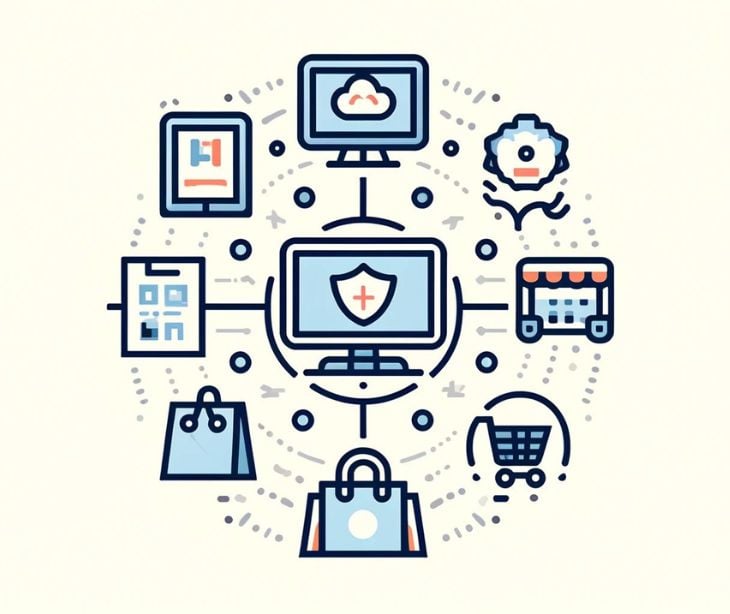3 min read
What healthcare employers need to know about HIPAA and employee health records
Liyanda Tembani
August 20, 2024

Although HIPAA doesn’t directly cover employee health records, healthcare organizations must handle this sensitive information carefully. Healthcare employers can protect patient and employee health information by clearly separating their roles, enforcing strong privacy and security measures, and ensuring thorough employee training. These actions help maintain compliance and build trust and confidence among patients and employees.
How HIPAA applies to employee health records
HIPAA primarily protects health information held by healthcare providers, insurers, and healthcare clearinghouses, known as covered entities. According to the Department of Health and Human Services, "Covered entities are defined in the HIPAA rules as (1) health plans, (2) health care clearinghouses, and (3) health care providers who electronically transmit any health information in connection with transactions for which HHS has adopted standards.". However, it does not generally apply to employee health records maintained by an employer in its capacity as an employer. If a healthcare organization handles employee health records as a healthcare provider—such as when providing medical services to its employees—those records could be subject to HIPAA.
1. Separation of duties
Healthcare organizations must clearly distinguish between their roles as employers and healthcare providers. The separation avoids potential legal and ethical complications.
As employers, healthcare organizations may maintain employee health records for various reasons, such as managing sick leave, workers’ compensation claims, or health insurance benefits. However, these records should be kept entirely separate from the patient health records that the organization handles as a healthcare provider. The separation ensures that the privacy and confidentiality of both types of records are maintained, and it helps prevent any accidental disclosure of employee health information.
Healthcare organizations should implement clear policies and procedures that dictate how employee health records are stored, accessed, and used to manage this separation. These records should be housed in different systems or databases from patient health records, with access restricted to only those who need it for legitimate business purposes.
Related: How does HIPAA define a healthcare provider?
2. HIPAA compliance for healthcare operations
Healthcare organizations covered under HIPAA must follow strict regulations to protect patient health information. That includes implementing safeguards for privacy and security, conducting regular risk assessments, and ensuring that any sharing of patient information is done in compliance with HIPAA rules. While these regulations don’t apply to employee health records, the organization’s status as a covered entity stresses handling all health-related information—patient or employee—with the utmost care.
3. Employee privacy
Employers in the healthcare sector are entrusted with sensitive information about their employees, including health data. It’s their responsibility to protect this information from unauthorized access, use, or disclosure. This responsibility is a legal requirement and an ethical obligation to maintain the trust of their employees.
Healthcare organizations should implement encrypted storage, secure access controls, and regular audits of who has access to employee health records to protect employee privacy. These measures help ensure that only authorized personnel can view or handle sensitive employee information.
4. Data security
Healthcare organizations should apply the same rigorous security standards to employee health records as to patient records. That includes encryption, secure access controls, and regular security updates to prevent unauthorized access or data breaches.
Regularly conduct risk assessments to identify potential vulnerabilities in how health information is stored and accessed. These assessments allow organizations to address security gaps before they become problems, ensuring that patient and employee information is kept secure.
Read more: Types of data security
5. Employee training
Even if employees don’t directly handle patient information, they should be educated about HIPAA regulations and the importance of data privacy. Training should cover how to protect both patient and employee health records and what to do if they suspect a breach of confidentiality.
Training should include the basics of HIPAA, the organization’s specific policies on handling health information, and the procedures for reporting and responding to potential breaches.
FAQs
Can employee health records ever become subject to HIPAA regulations?
If a healthcare provider offers medical services to its employees and stores those records within its healthcare system, those records could be subject to HIPAA.
What should healthcare employers do if an employee requests access to their health records?
Employers should have a clear process, potentially guided by state laws, to handle such requests while ensuring that sensitive information is protected.
Can healthcare employers share employee health information with third-party vendors?
Healthcare employers should ensure that any third-party vendors handling employee health information are compliant with relevant state laws and have agreements in place to protect privacy.
Subscribe to Paubox Weekly
Every Friday we'll bring you the most important news from Paubox. Our aim is to make you smarter, faster.



